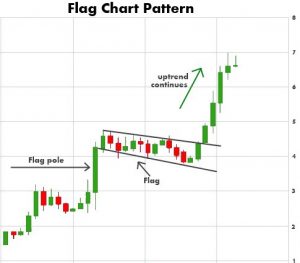How To Trade Penny Stocks When The Stock Market Is Down

Trading penny stocks can be a risky endeavor, but during market downturns, there are strategies traders can use to try and make money. Though past performance does not guarantee future results, applying certain methods may improve one’s chances of being profitable when trading penny stocks in a bear market.
This article will explore tips for selecting cheap stocks to trade, risk management, using technical and fundamental analysis, and reviewing economic indicators when the broader market is in decline.
Why Is The Stock Market Down Today?
The stock market is down today on more inflation-related fears and monetary tightening speculation. This comes after comments from Jerome Powell at an economic event on Wednesday. The yields on bonds swung after Federal Reserve Chair Jerome Powell reiterated that the central bank will continue to monitor economic and inflation trends. This is before deciding on future interest rate increases.

Though the Fed has already raised rates to the highest levels since 2001 to fight inflation, Powell noted that the steady rise in long-term yields, like the 10-year Treasury, is doing some of that work. It is slowing growth without requiring additional hikes.
However, new data showing ongoing strength in the job market with low unemployment claims implies persistent economic vitality. This could add fuel to inflation. This resilience defies predictions of a recession. However, it may lead the Fed to maintain higher interest rates for longer to rein in rising prices.
– Best Penny Stocks Under $1? 4 To Watch This Week
Select Promising Penny Stocks
When selecting penny stocks to buy during down markets focus on stocks with sound fundamentals. Look for penny stocks in industries less affected by market downturns like consumer staples and healthcare. Choose stocks with positive earnings, analyst coverage and strong financials. Avoid penny stocks prone to dilution and those with weak balance sheets. Utilize screeners to search for low-priced stocks meeting your criteria. The goal is to find quality stocks likely to weather the storm.
Use Stop Losses
Using stop losses is crucial when trading penny stocks in bear markets. Set stop losses to limit potential losses if a trade goes against you. Determine logical stop loss points under technical support levels. Using trailing stop losses to lock in gains as a stock rises can also be effective. Managing risk via stop losses lets you survive to trade another day.
Apply Technical Analysis

Utilize technical analysis strategies like recognizing candlestick patterns, trend lines and support/resistance. Identify chart patterns signaling a potential reversal like double bottoms. Look for oversold stochastic and Relative Strength Index readings that could foreshadow a bounce. Avoid penny stocks in pronounced downtrends. The goal is spotting pivotal points signaling a stock could change direction.
– Investing in Penny Stocks When the Market is Down? 3 Tips
Review Company Fundamentals
Analyze company fundamentals like revenues, earnings, assets/liabilities and cash flow. Search for positive catalysts like new products, contracts or discoveries. Favorable fundamentals and catalysts give penny stocks a better chance of bucking the downward trend. Stay updated on press releases, filings and guidance. The goal is gauging penny stocks to watch that have the fundamentals to potentially rise.
Consider Sector Trends
Review economic data, sector performance trends and market sentiment. Some sectors hold up better in down markets like discount retailers, dollar stores and junk food purveyors. Other sectors like luxury goods, travel and financials often underperform. Sector rotation lets you focus trading on areas weathering the downturn. The goal is trading penny stocks aligned with prevailing sector trends.
Use Limits When Entering Trades
Using limit orders versus market orders allows for controlling entry prices better. Set limits below technical support levels to get ideal entry points. Using limits avoids buying penny stocks extended above support. Don’t chase penny stocks up. Let them come to your limit price. Setting smart limit prices helps achieve better-timed entries, reducing risk.
Review Economic Indicators

Follow key economic reports for clues on market direction. Jobless claims, consumer confidence and manufacturing data offer insights. Rising claims and weakening consumer/business sentiment implies more market downside. Conversely, better data could foreshadow an impending rebound. Knowing which way the economic winds are blowing lets you adjust penny stock trading accordingly.
Scale In And Out Of Trades
Scale in and out of penny stock positions using partial share amounts versus entire blocks. For example, buy 300 shares then add another 200. Upon selling, sell 200 shares then 300. This scales you into and out of trades, allowing flexibility to adjust position size as the trade develops. Scaling provides better risk management compared to trading one lump sum.
When trading penny stocks in down markets don’t be afraid to quickly cut losses at 7-8%. Smaller losses are easier to recover from. Conversely, let profitable penny stock trades ride using trailing stops to lock in gains. Trading this way–cutting losers quickly while letting winners run–stands the best chance of success in bear markets.
– 4 Top Penny Stocks To Buy For Under $5
Trade The Best Setup Not Most Shares
When selecting penny stocks don’t simply sort by share price or volume. Prioritize high probability trade setups over penny stocks you can buy the most shares of. For example 200 shares of a penny stock consolidating above key support is a better trade than 1000 shares of a penny stock in a pronounced downtrend. Remember, it’s the quality of shares traded not quantity.
Review Previous Bear Market Actions
Look back at how your penny stocks traded in prior bear markets. Determine which penny stocks held key support levels or bottomed out quickly. Use this analysis to select penny stocks exhibiting relative strength in down markets. Stocks holding up better previously may do so again. Their chart history provides valuable insights for new down cycles.